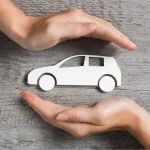Gaining hands-on experience is an imperative (and fun!) part of science education. Moving from the classroom into the laboratory undoubtedly enhances the learning experience. However, before moving your students into the new setting, be sure the lab is well prepped for its young scientists. Here are five tips to keep your class laboratory running safely and efficiently.
Table of Contents
1. Plan and Gather Supplies
Planning is an essential part of any teacher’s job. Science educators need to take an extra step when planning lab experiments. Make time at the beginning of each semester to plan the labs you will conduct. Take inventory of what supplies you already have on hand and what you will need to buy. Prepping weeks (or months!) in advance will avoid last-minute trips to the store for lab supplies or, even worse, running out of something on lab day.
A day or so before giving your students the reins, be sure to conduct the lab yourself. This will ensure all equipment and supplies are in working order. Note the time the experiment takes and any deviations from the written directions or measurements. Taking time to plan and prep will also help you identify areas of concern and develop a plan of action in an emergency.
2. Keep the Lab Clean and Organized
Keeping the laboratory clean and organized is imperative to keeping your students safe (see tip #3!). Remove any materials not used for the current experiments: store them safely out of students’ reach.
A well-organized lab includes many labels: label chemicals, other lab materials, and locations of all lab equipment. Proper use of labels will help you and your students find and return the items they need. At the end of lab day, don’t forget to allow students enough time to clean their space.
When an experiment goes wrong (and they probably will), speak with your school about hiring a professional cleaning service to remove any potentially hazardous material or tackle hard-to-clean areas. These teams have high-grade equipment and chemicals to ensure that you and your students are learning in a safe, clean, and sanitized environment.
3. Make Safety a Priority
Keeping students safe should be a top priority for all teachers. Unsurprisingly, most science educators begin their semester teaching lab safety protocols. However, you should review these safety precautions before conducting each experiment. When taking inventory of your lab supplies at the beginning of the semester, don’t forget to check your stash of personal protective equipment (PPE). You’ll want to have enough gloves, masks, and face shields on hand for all of your students. If your lab is not equipped with an eyewash station, consider purchasing a bottle of eye wash that can be used in a pinch. Ensure that every chemical in your inventory has an MSDS sheet and discuss the precautions with your students.
4. Provide Detailed Instructions
Communication is a key piece to keeping your classroom laboratory running smoothly. Provide students with clear and detailed written instructions for the experiment they will be conducting. Provide an oral overview of the steps and demonstrate any confusing pieces. Consider assigning a pre-lab activity for homework the day before. Have students review the experiment procedure, come prepared with any questions, and maybe even pass a short formative assessment before entering the lab.
5. Link Labs Directly to Classroom Learning
This might be an obvious tip, but the lab activity must meet an educational objective or goal (i.e., there must be a good reason to experiment). The lab should align with and enhance the concepts being taught in the classroom. Before, during, and after the experiment, reference what is going on and how it relates to what students have learned. At the end of the lab, students should be assessed on their learning: consider a formal lab report, simple post-lab evaluations, or experiment-related questions on an upcoming test. While labs are certainly fun, you need to hold your students accountable and be sure they are learning.
Thoughtful Preparation Leads to Fun Science Learning
While the goal is for your classroom lab to run like clockwork, not every lab day or experiment will go perfectly. Each time you experiment with students, you will gain knowledge to improve your next attempt. You may identify traffic flow issues that can be alleviated by changing the location of supplies. Or you may decide that each lab station should be supplied with the necessary items for the experiment. As you learn the best preparation solutions for each experiment, your students will learn the essential science concepts with their hands-on lab experience.








